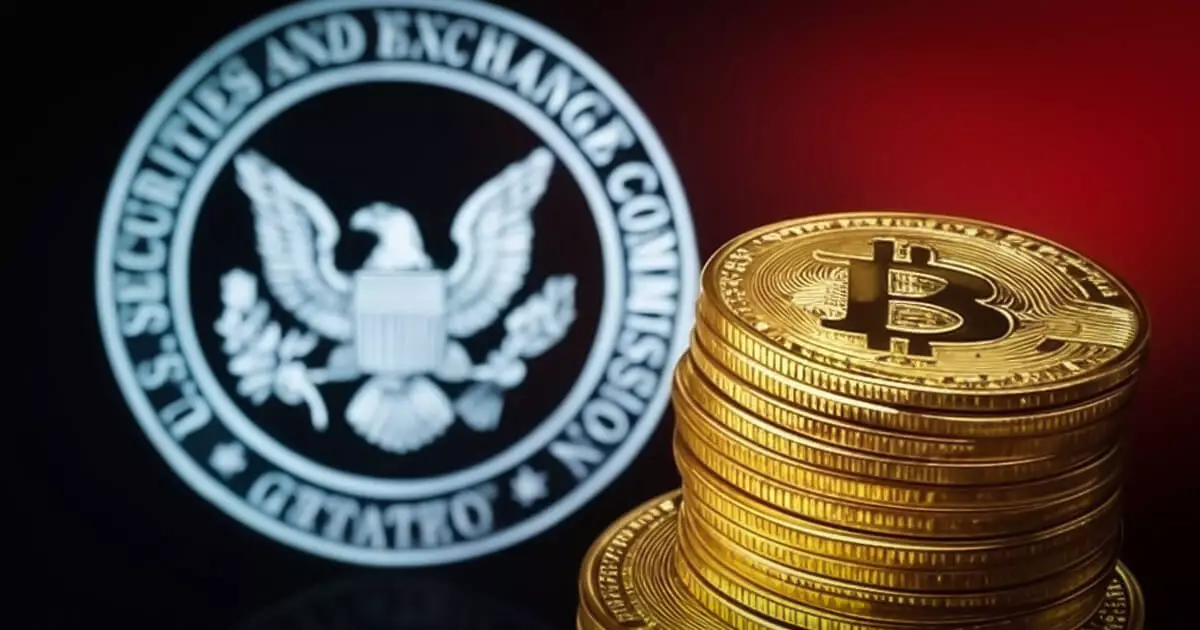As the political landscape shifts with the transition to the Trump administration, significant changes are anticipated within the U.S. Securities and Exchange Commission (SEC) concerning cryptocurrency regulation. Reports indicate that under the directive of pro-crypto commissioners, the SEC is poised to revise its enforcement strategy, rethinking its approach towards an industry that has faced intense scrutiny in recent years. With names like Hester Peirce and Mark Uyeda leading the charge, the prospect of a new regulatory framework offers both hope and trepidation for crypto firms navigating this evolving landscape.
The expected moderation in regulatory oversight is largely attributed to key individuals within the SEC. Hester Peirce and Mark Uyeda have made their positions on cryptocurrency clear; they advocate for greater clarity in the regulatory environment. As more companies consider cryptocurrency integration into their business models, the ambiguity surrounding whether cryptocurrencies qualify as securities has created a multitude of challenges.
Newly appointed SEC chair Paul Atkins is an instrumental figure in this anticipated transformation. His tenure at the Digital Chamber’s Token Alliance underscores a history of supporting less restrictive policies for cryptocurrencies. Critics argue, however, that a significant shift in the SEC’s posture may come at a cost — the credibility and integrity of regulatory enforcement across the board may be jeopardized.
Despite the promising signals from within the SEC, achieving a cohesive regulatory framework for cryptocurrency is unlikely to happen overnight. Sources suggest that the agency may take months, if not longer, to iron out a set of rules that satisfies both the industry and regulatory demands. The SEC’s potential reevaluation of ongoing litigation — particularly those cases lacking allegations of fraud — points to a nuanced approach intended to foster dialogue rather than capitulate to pressures from crypto advocates.
Legal experts warn that rushing toward a resolution could inadvertently invite legal complications. The complexity inherent in categorizing cryptocurrencies as securities poses significant challenges for regulators and courts alike. Philip Moustakis, a former SEC attorney, argues that mass halting of enforcement actions could damage the SEC’s credibility and efficacy as a regulatory body.
One of the primary driving factors behind the anticipated regulatory shift is the excessive compliance burden on cryptocurrency firms. The current framework has resulted in mounting costs that are often perceived as prohibitive, discouraging newcomers and hindering innovation in the space. The withdrawal of specific accounting guidance seen as problematic by industry experts may allow companies to hold cryptocurrencies for clients more freely, thereby unlocking more liquidity and boosting market participation.
However, this loosening of regulations doesn’t come without concerns. Critics of a more lenient approach warn of the dangers it may pose to investor protection and financial stability. If enforcement actions are rolled back, potential risks could be obscured, leaving consumers vulnerable to fraud or other malfeasance in an already turbulent market.
The Balancing Act: Navigating Political Pressures and Regulatory Integrity
The prospect of politicization in regulatory enforcement looms large over the SEC’s potential actions. While some see the easing of restrictions as a long-overdue alignment with technological advancement, others caution against setting a precedent that may undermine the foundational principles of regulatory integrity. Experts assert that the SEC must tread carefully to avoid the appearance of favoritism toward specific sectors or industries.
As the cryptocurrency sector continues to burgeon, the intersection of technology and regulation will remain fraught with uncertainty. The anticipated reset in regulatory posture may pave the way for a more collaborative relationship between crypto firms and the SEC; nevertheless, the outlook remains cautious and complex. As the commission undertakes its mission to provide clarity and oversight, the industry watches closely, eager to see how these changes might shape the future of cryptocurrency regulation in the United States.

